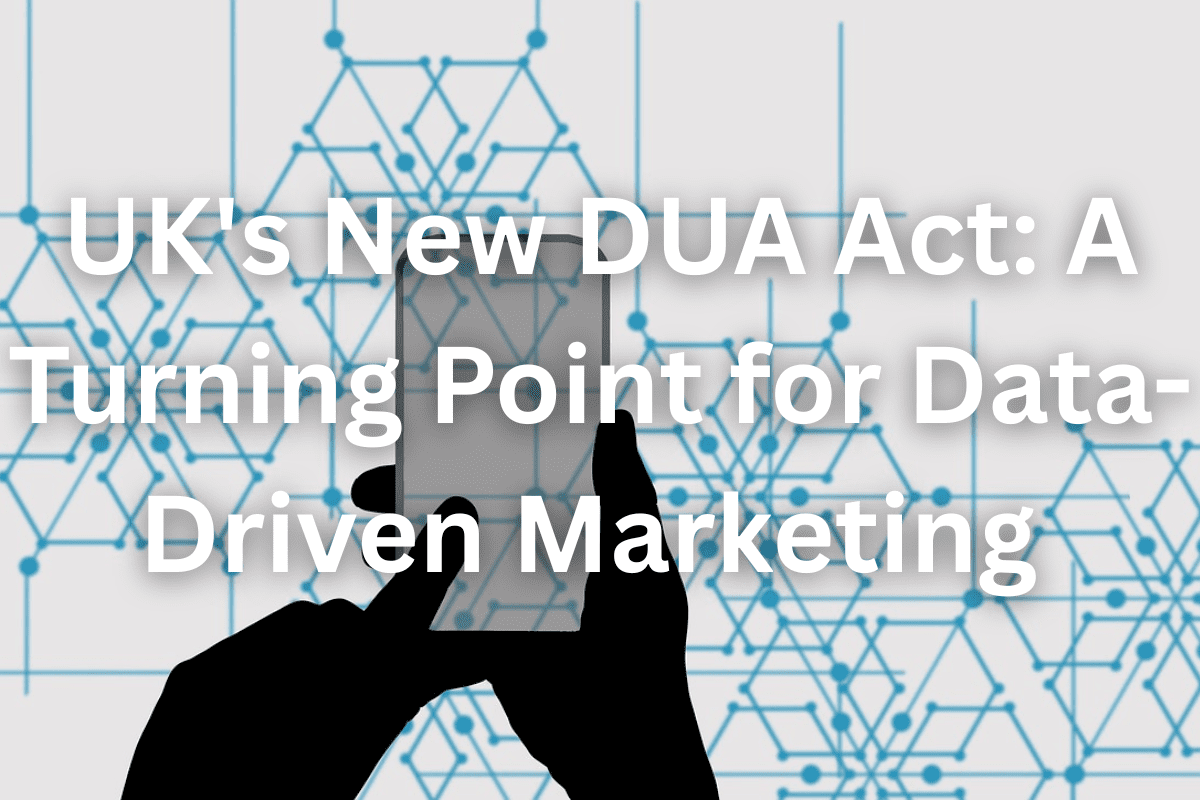The UK’s newly passed Data (Use and Access) Act, or DUA Act, is set to reshape the marketing landscape in the United Kingdom, offering a refreshing blend of opportunity and responsibility for brands operating in a data-driven world.
Building on the foundation laid by the former Data Protection and Digital Information (DPDI) Bill, the DUA Act responds to the ever-evolving digital environment, particularly in an age where AI and automation are redefining business practices.
This legislation arrives at a pivotal moment, as marketing teams across the country grapple with increasing pressure to drive personalised, efficient campaigns while navigating a complex web of privacy regulations.
The DUA Act promises not only a modernised approach to data regulation but also a shift in how marketers can legally and effectively interact with their audiences.
Legitimate Interest Takes Centre Stage
Arguably the most impactful change in the DUA Act is a seemingly subtle but powerful textual shift.
Recital 47 of the EU’s GDPR, which identifies direct marketing as a potential legitimate interest, is no longer just a footnote. Under the DUA Act, this concept is formally integrated into the main body of UK law.
This simple repositioning carries significant weight. By officially recognising legitimate interest as a lawful basis for most marketing activities, the UK government is providing marketers with more flexibility in how they engage consumers – without the recurring need for opt-in consent.
This is a crucial development for teams bogged down by administrative hurdles, freeing up time and resources to focus on creating more meaningful customer interactions.
For brands, this move offers a clearer legal pathway to execute direct marketing campaigns without fear of breaching privacy rules, as long as transparency and clear opt-out mechanisms are maintained.
Simplified Cookie Consent – A Relief for Marketers
Another major win for the marketing sector comes in the form of revised cookie consent requirements.
Under current EU-influenced rules, brands often must obtain explicit consent for most cookies, even those used for basic analytics – leading to disruptive pop-ups and “consent fatigue” among users.
The DUA Act aims to ease these restrictions, particularly for low-risk cookies. Cookies used to improve website performance, track anonymised analytics, or remember user preferences may no longer require prior consent under the new rules.
This could significantly reduce friction for users while empowering marketers to collect the data they need to make informed decisions and deliver tailored experiences.
The streamlined consent approach stands in stark contrast to the increasingly rigid stance of EU regulators, positioning the UK as a potentially more business-friendly environment in the digital economy.
Implications for AI, Personalisation, and Automation
By relaxing restrictions around data usage, the DUA Act opens the door to more advanced marketing strategies powered by Artificial Intelligence and machine learning.
With greater access to user data under the legitimate interest framework, marketers can fine-tune automated and personalised campaigns without the constant barrier of consent prompts.
From behavioural segmentation to predictive analytics, the possibilities for marketing innovation are set to expand, giving UK businesses a competitive edge both domestically and internationally.
However, this freedom comes with the expectation of heightened responsibility. Brands must ensure ethical use of personal data, including clear communication, secure data handling, and easy-to-access opt-out features.
The Responsibility to Stay Transparent and Accountable
While the DUA Act offers welcome flexibility, it does not signal the end of accountability. On the contrary, brands must now double down on robust data governance.
This means reviewing existing policies, updating data protection impact assessments, and ensuring that marketing practices remain compliant and respectful of consumer rights.
Transparency will be the cornerstone of trust. Consumers expect to know how their data is being used, and under the DUA Act, organisations must provide this information in a clear, accessible, and honest manner.
Furthermore, organisations should not overlook user control. Even with more leeway on consent, opt-out mechanisms must remain easy to find and use, ensuring that individuals retain agency over their personal information.
Preparing for the Road Ahead
Now that the DUA Act has successfully passed through Parliament, UK marketers must begin proactively preparing.
This means conducting thorough internal audits of data usage practices, assessing third-party vendors for compliance, and aligning marketing strategies with the updated legal framework.
It’s not just about compliance – it’s about adapting to a new reality where data is both a strategic asset and a shared responsibility. Brands that strike this balance will be best positioned to harness the full potential of the DUA Act.
Conclusion: A Landmark Shift with Opportunity at Its Core
The DUA Act marks a landmark moment in the UK’s digital journey – one that gives marketers more room to innovate while demanding a renewed commitment to ethical and transparent data use.
By embedding legitimate interest into core legislation and simplifying cookie requirements, the Act reduces red tape, enabling smarter, faster marketing without compromising consumer trust.
As the marketing world evolves alongside AI and digital transformation, the DUA Act provides a framework that rewards agility, clarity, and responsibility. For marketers willing to adapt, it’s a chance to do more with data – ethically, effectively, and with the full backing of UK law.









